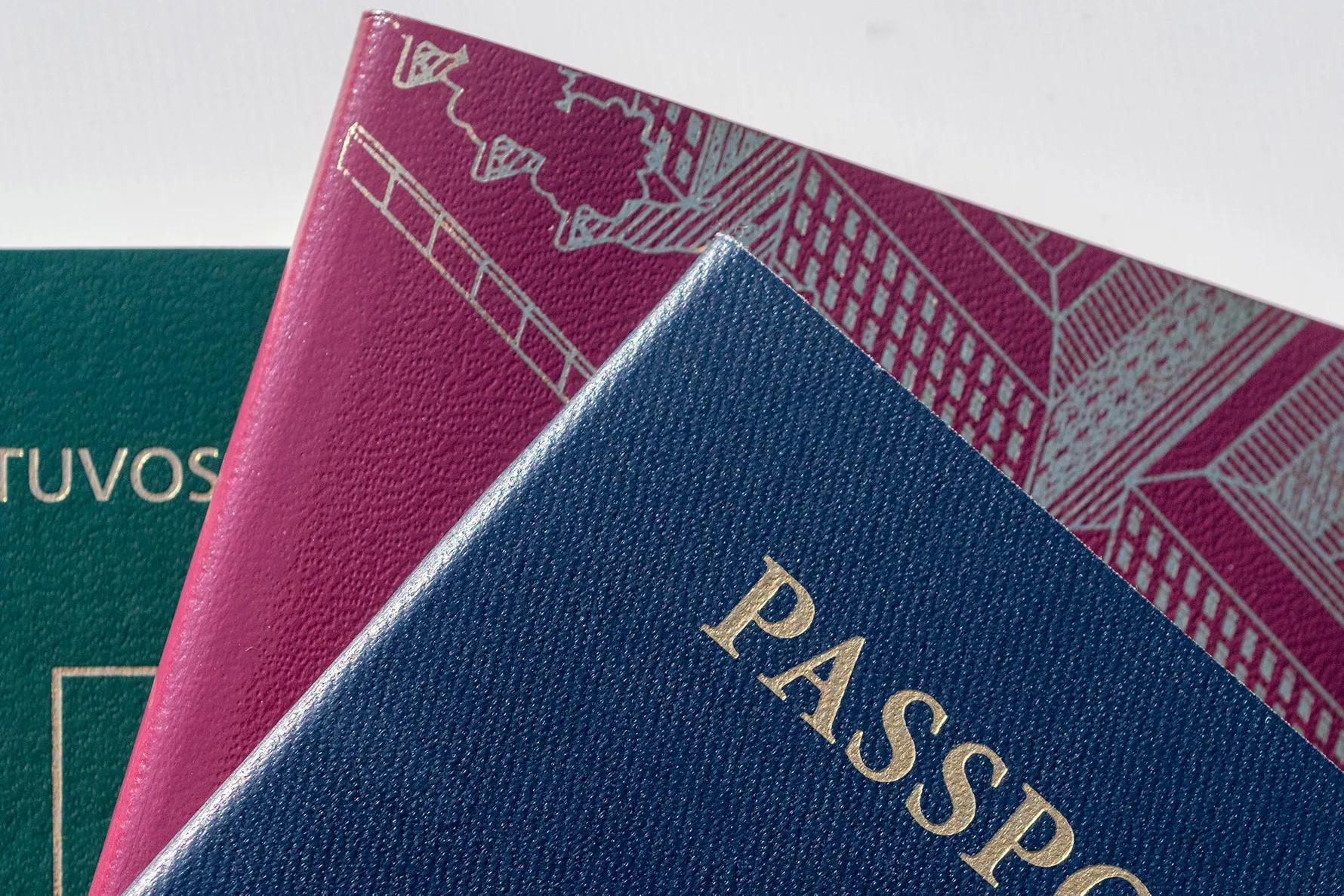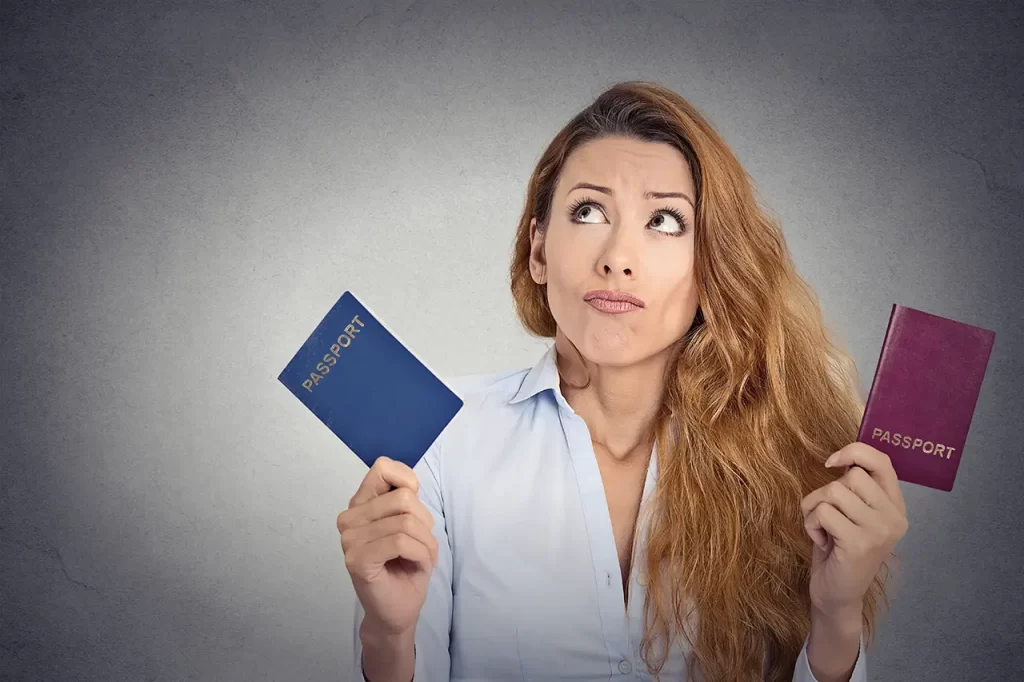
Imagine navigating the world with access to nearly all international destinations, not just relying on the passport assigned to you at birth, but choosing your citizenship as a strategic decision. This isn’t just a fanciful idea for those with multiple citizenships – it’s their reality. In our increasingly interconnected yet border-defined world, the concept of holding multiple citizenships presents a compelling mix of freedom and complexity. How many citizenships can you have? The answer varies, but for those who possess more than one passport, nationality transforms from a static assignment into a dynamic choice, opening doors to a plethora of global opportunities. This reality challenges the traditional view of citizenship and invites a world of possibilities for personal and professional mobility.
Delving into the intriguing world of dual, triple, or even multiple nationalities, this guide unravels the nuances and addresses key questions like “how many passports can you have?” and “can you be a citizen of multiple countries?” We explore the burgeoning trend of investment immigration, where financial investments in a country can lead to an additional citizenship, signaling a shift towards more fluid and strategic national ties. Serving as a comprehensive resource, it navigates through the diverse landscape of international laws and the practical realities of holding multiple citizenships, aiming to examine both the benefits and the complexities associated with this modern phenomenon.
Understanding the Rules: How Countries View Multiple Citizenships
Multiple citizenship or dual citizenship is a legal status in which an individual is recognized by more than one country as a national or citizen. There are no overarching international policies that determine citizenship status, so it is determined by national laws instead. These national laws can contradict each other, which makes multiple citizenship a complicated issue.
One of the major points of contention surrounding multiple citizenships is the diverse and specific nature of national regulations. Some nations strictly prohibit dual citizenship, while others embrace it conditionally. The lack of a universal standard means that regulations can significantly differ from one country to another, leading to complexities in legal frameworks and diplomatic relations. Dual or multiple citizens often find themselves caught between two sets of regulations, which can lead to conflations between governments.
Citizenship can be acquired by birth, marriage, naturalization, or investment, among other pathways. Some dual citizens enjoy the right to vote, work, and reside in their adopted country, while others face greater restrictions. For instance, Canada, Australia, the United Kingdom, and some countries in the EU commonly permit citizens to hold dual nationality without significant restrictions. This demonstrates a flexible approach that other countries have avoided.
Exploring Multiple Citizenship Laws Across Different Countries
Now that we understand that each country sets its own rules for multiple citizenship, a key question arises: how many citizenships can you have? This depends on the specific laws of each nation, and it’s essential to dive deeper into these country-specific criteria. It’s important to note that changes in the political status of a country can also lead to changes in its policies on multiple citizenship. These policies can become more restrictive or inclusive due to fluctuations in migration, shifts in government, conflicts, or territorial disputes.
The following are some of the countries that allow for dual citizenship, each with its own set of notable exceptions and limitations. These may include restrictions on certain rights, specific conditions for maintaining dual status, or unique requirements for individuals holding citizenships of multiple countries.
| Country | Permits dual citizenship? | Exceptions and Limitations |
| Spain | Yes | For citizens of Argentina, Bolivia, Chile, Colombia, Costa Rica, the Dominican Republic, Ecuador, France, Guatemala, Honduras, Nicaragua, Paraguay, Peru, Puerto Rico, Venezuela and Puerto Rico (upon request) |
| Turkey | Yes | Must provide the original naturalization certificate, Turkish birth certificate, marriage certificate (if applicable) and two photographs. |
| Poland | Yes | Dual citizens cannot exercise rights and duties of the second citizenship in relation to the Polish government |
| France | Yes | Dual citizens cannot exercise rights and duties of the second citizenship in relation to the French government |
| Egypt | Yes | Dual citizens cannot be elected to Parliament |
| Armenia | Yes | Dual citizens cannot be elected to Parliament |
| Colombia | Yes | Dual citizens cannot be Ministers of foreign affairs and of defense |
| Australia | Yes | Dual citizens cannot be elected to the federal Parliament |
| New Zealand | Yes | Dual citizens cannot be elected to Parliament |
| The Philippines | Yes | Dual citizens cannot run for local elective office unless they are dual citizens by birth |
| Kenya | Yes | Dual citizens may not be elected or appointed to any state office or serve in the armed forces unless their second citizenship was obtained involuntarily. |
| United States | Yes | Children born in the U.S. to foreign diplomats living in the US do not automatically receive U.S. citizenship. They can register for lawful permanent residency, provided they meet specific conditions. |
A common complication in dual citizenship arises when someone is naturalized in a new country and attempts to renounce their original citizenship. However, if the original country does not legally recognize this renunciation, the individual remains a citizen there, according to its laws. Consequently, they inadvertently hold dual citizenship: officially a citizen of the new country due to naturalization, and still a citizen of their homeland because the renunciation is not acknowledged. This situation leads to dual citizenship, not by personal choice, but due to conflicting national legal stances on citizenship renunciation.
Benefits of Holding Multiple Citizenships
Despite the complexities of national multiple citizenship policies, there are still many advantages to holders of more than one passport. Multiple citizenship opens up a world of personal and professional opportunities, not the least of which is increased global mobility. Often, dual citizens will have one passport that is more powerful than the other and offers greater ease of travel. Usually, this more powerful passport has less constrained visa requirements.
Business owners or entrepreneurs tend to benefit from this most as it allows them to explore global markets and expand their professional network. Of course, it’s also valuable for students who want an international education and anyone interested in relocating for personal reasons.
For many, multiple citizenship can be a lifeline. Many choose to use their second passport to relocate, perhaps for a better quality of life or to avoid a complex political situation. Dual citizens have a chance to recreate their lives in countries that are conducive to their lifestyle, free from any kind of persecution or harm.
Most importantly, it provides the opportunity to experience the rich diversity of other countries while avoiding the hassle of visa procedures.

How to Legally Acquire Multiple Citizenships
There are several common forms of citizenship that national laws consider when determining their policies. The following are legal ways to acquire multiple citizenship:
- Citizenship by descent (jus sanguinis): Most countries permit the tracing through either a parent or, in some cases, a grandparent.
- Citizenship by birth on the country’s territory (jus soli): Many countries grant unconditional birthright citizenship, while others curb it to prevent birth tourism.
- Citizenship by marriage (jus matrimoni): Some countries give citizenship to spouses of their citizens.
- Citizenship by naturalization: Most countries have a process for foreign nationals to become citizens through immigration pathways or residency programs.
- Citizenship by adoption: Adopted minors can become citizens if one of their adoptive parents is a citizen.
- Citizenship by investment: Some countries give citizenship to people who make a substantial monetary investment in their country. Dominica, Saint Kitts and Nevis, Saint Lucia, Antigua and Barbuda, Grenada, Turkey, and Egypt are some of the countries that offer this pathway.
- Citizenship based on ethnicity and religion: Some countries grant citizenship to individuals of a certain background.
While most of these pathways will depend on the individual’s heritage or personal circumstances, citizenship by investment is undertaken by choice. Citizenship or residency by investment programs allows eligible applicants to obtain citizenship in a qualifying country by making a financial contribution or investment to the local economy, such as real estate, business ventures, or government bonds. Applicants are well-vetted and typically go through several interviews. However, once selected, they enjoy the rights and privileges associated with citizenship.
Anyone seeking multiple citizenship through investment should be aware of the financial, legal, and tax implications. Applicants should assess their ability to cover the cost of the required investment, along with any associated fees and expenses. Of course, applicants should also consider any potential limitations on dual citizenship imposed by their home country as they may be subject to change. If all bases are covered, citizenship by investment is one of the most straightforward pathways for individuals to achieve dual citizenship while making a meaningful investment.
Potential Challenges and Considerations
Having dual or multiple citizenship is advantageous, but some complications can also arise. Individuals with dual or multiple citizenship often find themselves subject to complex tax regulations, with the potential for overlapping obligations in different countries. Legal counsel can help navigate tax treaties, international agreements, and tax law compliance.
In addition, dual citizens could be subject to military obligations imposed by some countries. Individuals must be aware of the specific requirements of each country they hold citizenship in, as failure to meet these obligations could lead to legal consequences or limitations on their rights.
Political changes in a country can significantly affect individuals holding multiple citizenship. Shifts in government policies, amendments to citizenship laws, or geopolitical events may impact the recognition or validity of certain citizenships. Individuals can navigate these changes by staying informed about developments in the countries, seeking legal counsel, and maintaining open communication with relevant authorities.
Conclusion
The laws and regulations around multiple citizenship are complex and vary from country to country. However, that should not deter anyone from enjoying the benefits of having multiple citizenships. In response to the core question of our discussion, “How many citizenships can you have?” the answer is that it largely depends on the laws of your original and potential new countries. While some countries allow dual citizenship or multiple citizenships simultaneously, others do not and may require you to renounce your previous citizenship.
Dual or multiple citizenship can open up new opportunities to travel, do business, get a top-notch education, and experience new cultures. There are challenges to obtaining multiple citizenship by investment, especially concerning legal obligations and tax consequences. However, there are dedicated professionals who can guide applicants through the immigration and investment process to ensure a successful outcome.
Looking ahead, the trajectory of investment immigration and global citizenship will be influenced by a growing demand for flexibility and mobility. With the increasing interconnectedness of the world, individuals and investors are likely to pursue opportunities that transcend borders. The changing landscape of citizenship-by-investment programs and the rising acceptance of dual or multiple citizenship in various countries indicate a shift towards more inclusive and adaptable approaches. Nevertheless, it remains of crucial importance that individuals stay informed of shifting political dynamics and understand the legal implications of multiple citizenship before taking the life-changing step toward greater international opportunities.